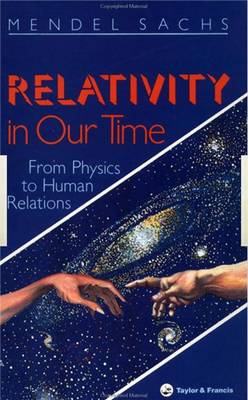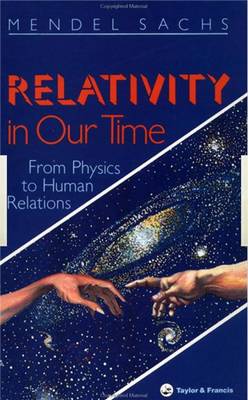
- Retrait gratuit dans votre magasin Club
- 7.000.000 titres dans notre catalogue
- Payer en toute sécurité
- Toujours un magasin près de chez vous
- Retrait gratuit dans votre magasin Club
- 7.000.0000 titres dans notre catalogue
- Payer en toute sécurité
- Toujours un magasin près de chez vous
Description
"Relativity In our Time" is a book concerning the relevance of Einstein's theory to human relations in contemporary times. lt is physics and it is philosophy. lt is a discussion about one of the greatest of all pillars of 20th century thought and science. Based on a seminar course for a mixture of science and humanities students, the approach and narrative style leads the reader towards the frontier of thinking in this farreaching subject. Sachs deals with the whole spread of relativity, starting from the early history of Galileo and Faraday, he arrives at the foundation of the special theory. There is a logical transition to the general theory while the last part of the book covers the mind-testing realms of unified field theory, Mach's principle and cosmology. The book begins with atomistic, deterministic, classical physics and goes on towards a view of continuous fields of matter and a clearer view of spacetime. The reader is led into Einstein's extension of this theory towards a unified force field; consequently the authors address the issue of the validity of linear mathematics compared with the realism of a non- linear universe.; Such arguments today are leading towards a new paradigm in science - a study and description of nonlinear natural systems especially far from equilibrium systems; their energetics and dynamics. This book should be of value to postgraduates, undergraduates, secondary students and professionals in physics and philosophy and anyone with an interest in science subjects.
Spécifications
Parties prenantes
- Auteur(s) :
- Editeur:
Contenu
- Nombre de pages :
- 174
- Langue:
- Anglais
Caractéristiques
- EAN:
- 9780748401178
- Date de parution :
- 07-07-93
- Format:
- Livre relié
- Format numérique:
- Genaaid
- Dimensions :
- 159 mm x 239 mm
- Poids :
- 421 g

Les avis
Nous publions uniquement les avis qui respectent les conditions requises. Consultez nos conditions pour les avis.






